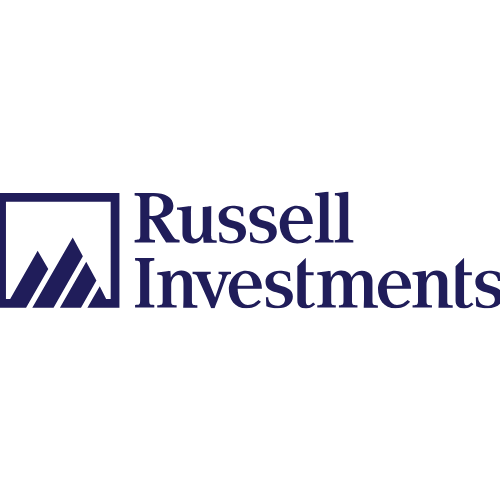The Association of Member Nominated Trustees (AMNT), in conjunction with Schroders, has conducted a survey of MNTs from over forty pension schemes in order to better understand the issues and challenges currently facing schemes.
According to the survey, half of respondents are planning for a buy-out as their endgame objective.
Yet, MNTs have identified hurdles of moving to buyout with the top three stated as insurer capacity, current pricing and the sponsoring employer having differing views.
Additionally, over one-third of respondents view run-off as a viable option for their scheme, showing confidence in the sustainability of continuing operations and meeting obligations without seeking a buy-out.
Just under half (48%) of respondents are open to targeting lower return objectives for longer to achieve their endgame with lower leverage on LDI, indicating strategic patience.
Nearly 1 in 5 respondents do not feel comfortable about the impact of any future cyber event, reflecting ongoing concerns about cybersecurity risks.
Some 45% of the pension schemes have developed governance software with future upgrades planned, indicating a proactive stance towards enhancing governance capabilities.
Meanwhile, 41% of pension schemes disagreed with the need for change in their investment strategy even after the gilt crisis, indicating a strong belief in the resilience of their current governance structures.
When assessing a change in investment strategy, 36% of trustees are considering diverse approaches, reflecting the multifaceted challenges faced by pension schemes.
Commenting on the research AMNT committee member Stephen Fallowell said: "The findings show a definite improvement in trustees’ confidence in reaching beneficial outcomes for members. Though buyout remains the primary end game there is a significant increase in funds moving to run-off and self-sufficiency. On a less positive note, one of the most significant threats to funds was felt to be the possibility of cyber-attack with its harmful effects on the fund and its members. Our analysis also provides insights from trustees on their motivations, perspectives and challenges with regard to their investment and governance approaches" he concluded.
Schroders Ronan O’Riordan, Head of UK Institutional Business Development, said: “Traditionally, a buy-out with an insurance company has been viewed as the “gold standard” for pension schemes. However, many are challenging whether conducting a buy-out as soon as possible is the optimal solution for their scheme. As a result, alternative strategies, specifically run-off strategies, are gaining traction.
“The evolving market and legislative landscape have led pension scheme trustees to consider alternatives to traditional buy-out strategies. Run-on solutions, particularly those using a CDI strategy, are emerging as viable alternatives, offering control, flexibility, and certainty of outcomes.”
AMNT/Schroders Survey 2024 key findings:
Beyond the main themes highlighted above, the survey uncovered additional crucial considerations for MNTs in 2024 and beyond.
A sizeable portion of responses (37%) are aiming for self-sufficiency.
Approximately 25% of respondents express concern that advisors should have moved more quickly to adjust DC and AVC funds considering interest rate rises. This highlights the importance of timely and informed advice in navigating changing market conditions.
Governance, regulation, and risk management: The growing complexity of governance and regulatory compliance, such as the Single Code and the General Code, is a concern. The impact of government interference and financial regulators changes on scheme operations, and the challenges of risk management within pension administration, also emerged.
Member engagement, communication, and education: The enhancement of member communications, especially about liability transfers and AVC investment, is crucial. The pensions dashboards initiative and comprehensive scheme information are important for member decision-making. Emphasis was also placed on member education on ESG and sustainability.
ESG, sustainability, and investment: integrating ESG factors into investment strategies and balancing sustainability with trustee duties is important. Concerns were raised about market challenges, such as the reversal of quantitative easing, and the functionality of the buy-out insurance market.
Operational and strategic management: Issues include handling GMP, resource allocation, and transparent discussions with sponsoring employers.
The importance of diversity, challenging established suppliers/advisers, and regular strategy reviews was also highlighted.
Emerging technologies and trends: The influence of AI, international insecurity, and the evolving landscape of mergers and government interference were noted. Staying updated with technological developments and leveraging their potential is important.
Taking these findings into account, the survey suggests that trustees consider the following actions if they have not already done so:
Conduct a comprehensive review of their scheme’s investment strategies and governance models in response to recent market events and economic
conditions.
Evaluate the scheme’s endgame objectives and strategies, considering the unique circumstances and needs of the scheme. Invest in governance software to mitigate operational and cybersecurity risks and enhance the scheme’s cybersecurity preparedness to better withstand potential attacks.
Engage in dialogue with the scheme’s sponsoring employers and administrators to ensure alignment of objectives and strategies, particularly in relation to endgame planning and cybersecurity event management.
Continue to enhance their skills and expertise as an MNT through ongoing training and development and share knowledge and best practices with other MNTs across different schemes.
-ENDS-
Notes to Editors
The Association of Member Nominated Trustees was established in September 2010 to bring together member-nominated trustees, directors and representatives of public and private sector pension schemes to give trustees a collective voice, to provide mutual support and information exchange and to campaign on matters of concern. The AMNT has around 800 members from pension funds with collective assets of approximately £1-trillion.
The research was carried out by Schroders via an online survey from 29 November 2023 to 16 January 2024.
For further information please contact: Andrew Sharkey 07711 825439.
A full copy of the report can be read or downloaded from https://www.amnt.org/amnt-schroders-survey-report
For comment from Schroders please contact:
Andy Pearce, Head of Media Relations +44 207 658 2203
Rachael Dowers, PR Manager +44 207 658 2086
Schroders plc is a global investment manager which provides active asset management, wealth management and investment solutions, with £773.7 billion (€912.6 billion; $978.1 billion) of assets under management at 30 June 2024. As a UK listed FTSE100 company, Schroders has a market capitalisation of circa £6 billion and over 6,000 employees across 38 locations. Established in 1804, Schroders remains true to its roots as a family-founded business. The Schroder family continues to be a significant shareholder, holding
approximately 44% of the issued share capital.
Schroders success can be attributed to its diversified business model, spanning different asset classes, client types and geographies. The company offers innovative products and solutions through four core business divisions: Public Markets, Solutions, Wealth Management, and Schroders Capital, which focuses on private markets, including private equity, renewable infrastructure investing, private debt & credit alternatives, and real estate.
Schroders aims to provide excellent investment performance to clients through active management. This means directing capital towards resilient businesses with sustainable business models, consistently with the investment goals of its clients. Schroders serves a diverse client base that includes pension schemes, insurance companies, sovereign wealth funds, endowments, foundations, high net worth individuals, family offices, as well as end clients through partnerships with distributors, financial advisers, and
online platforms.




